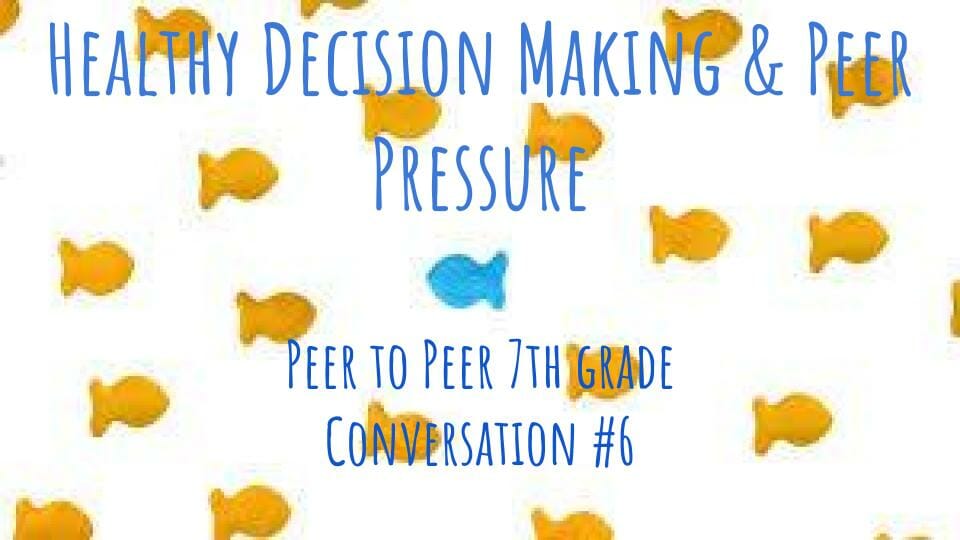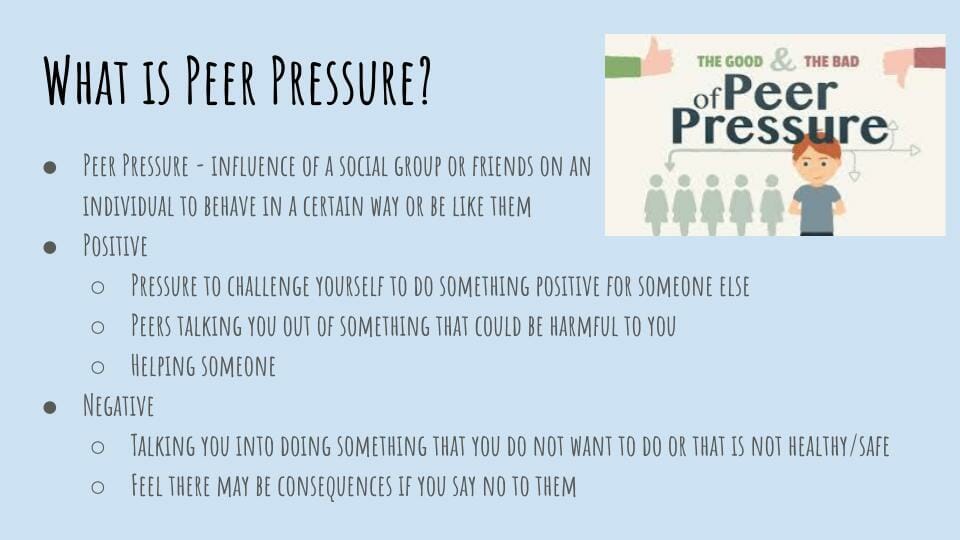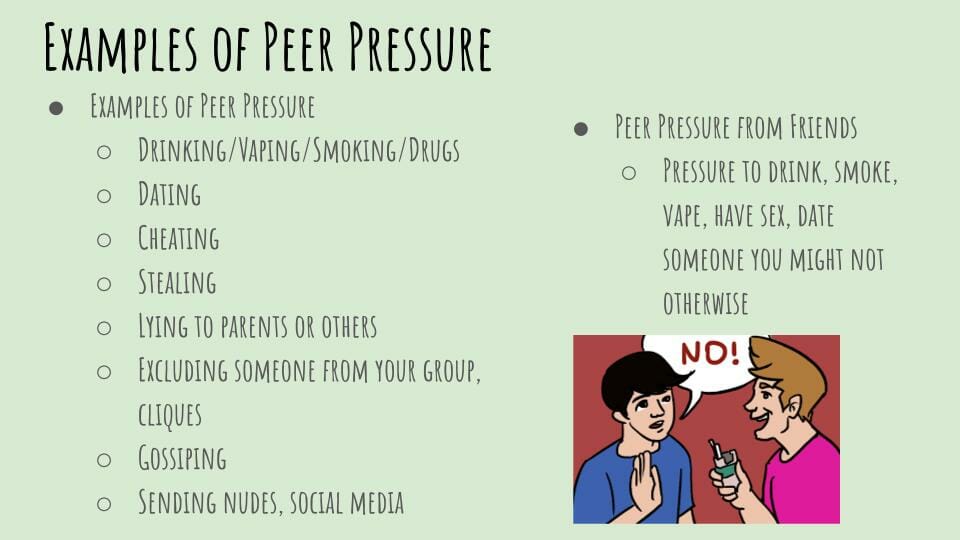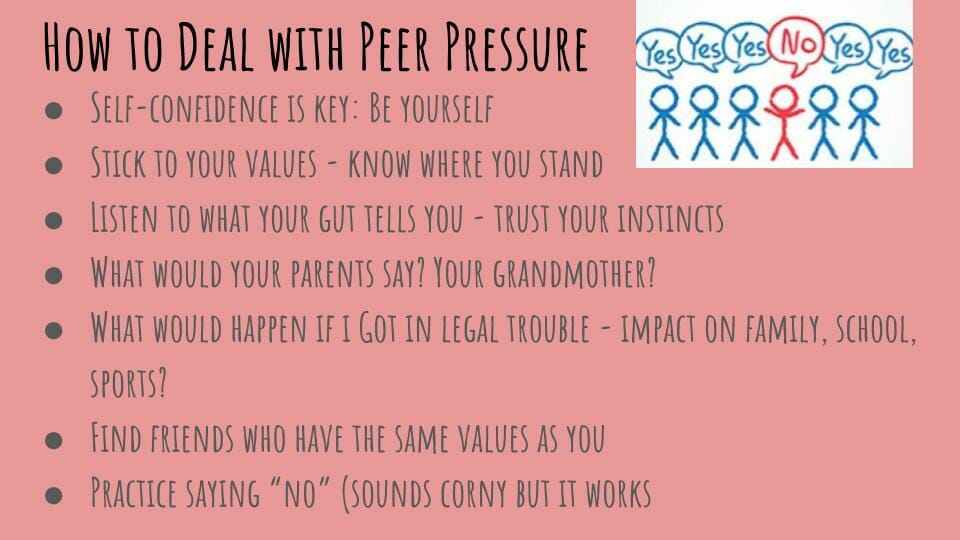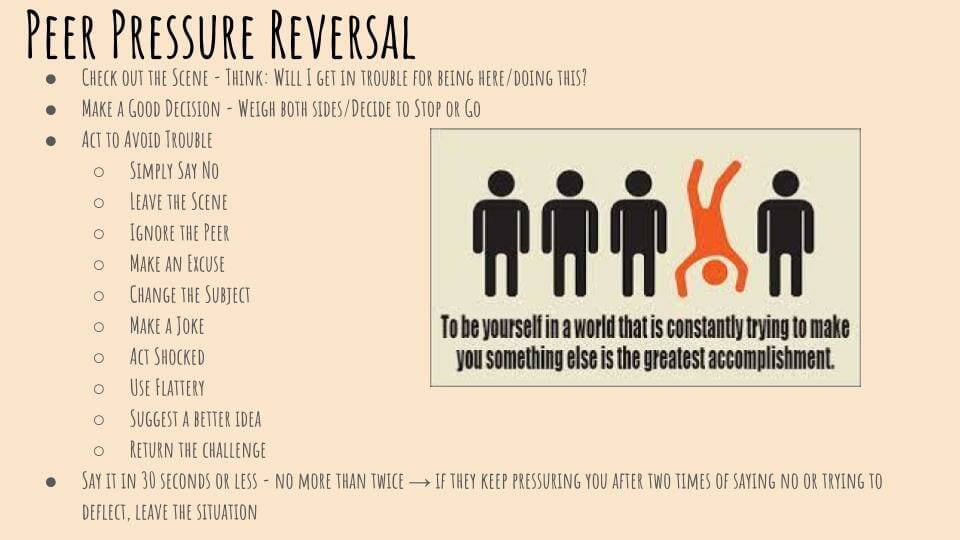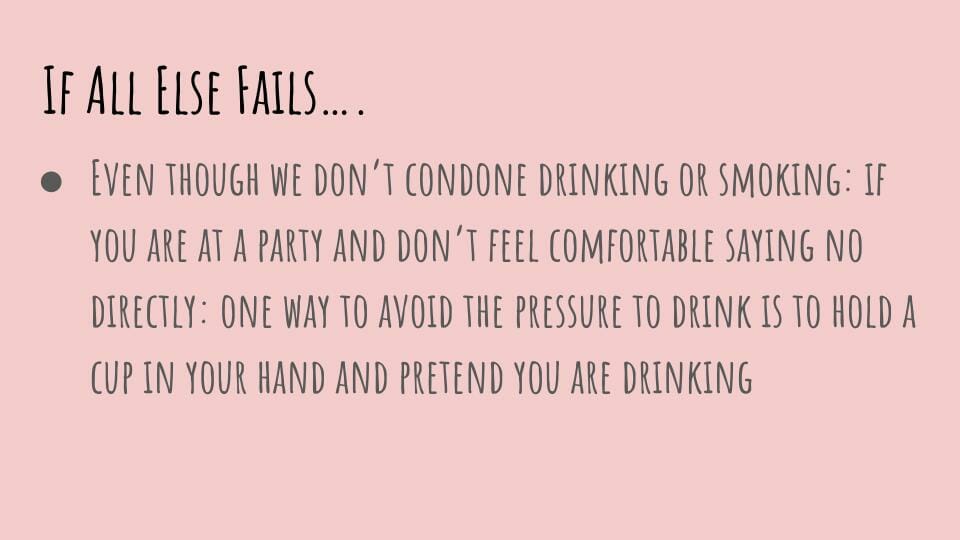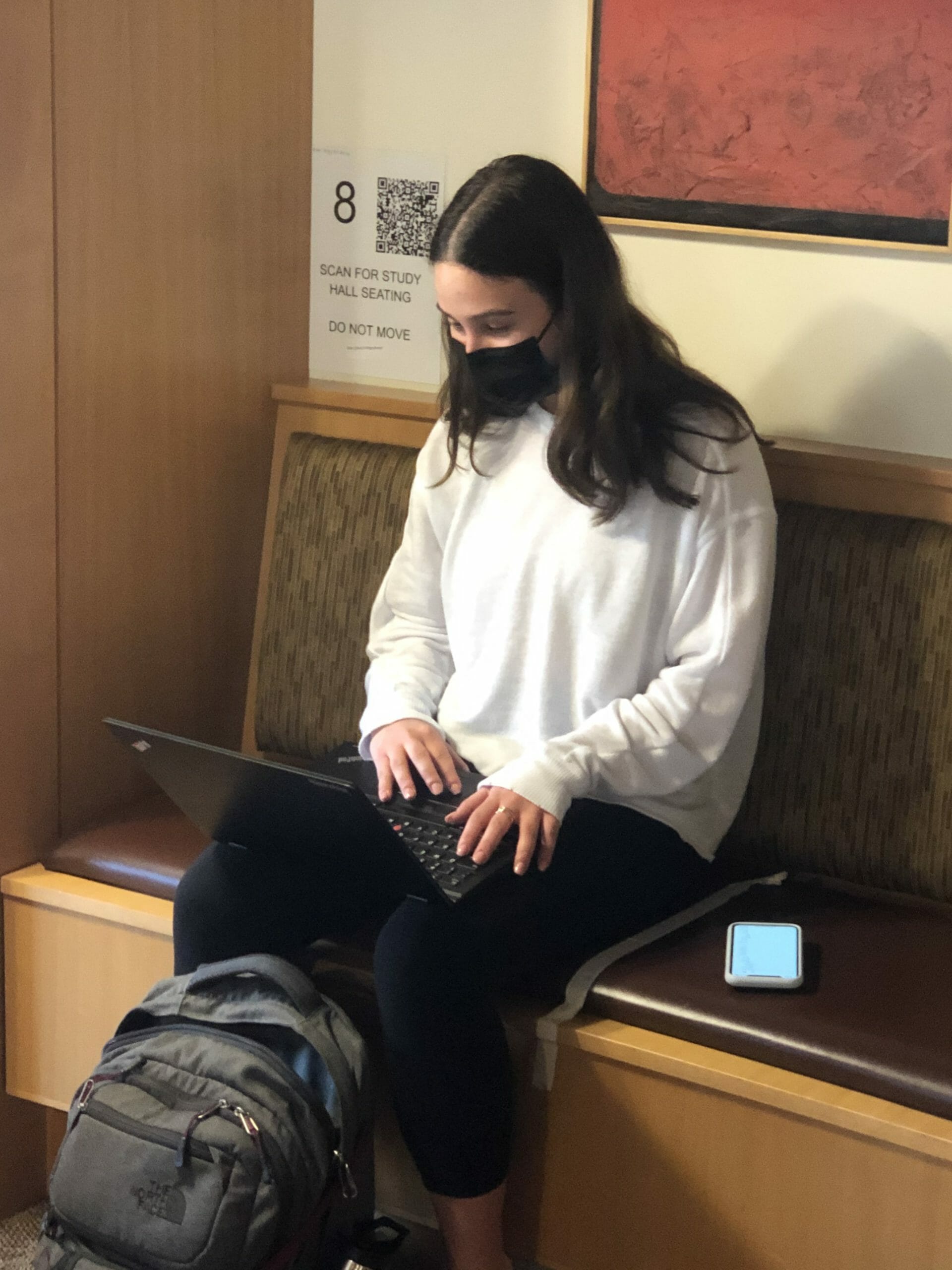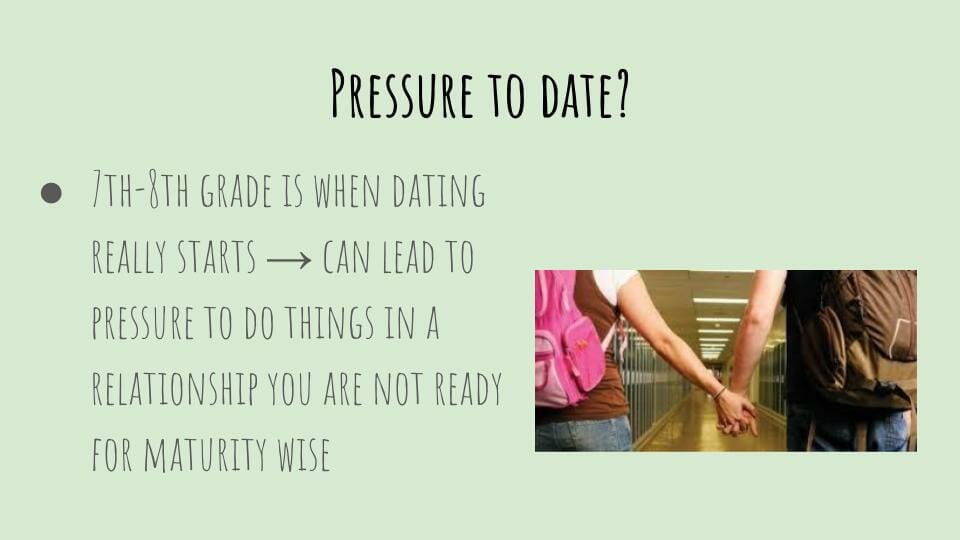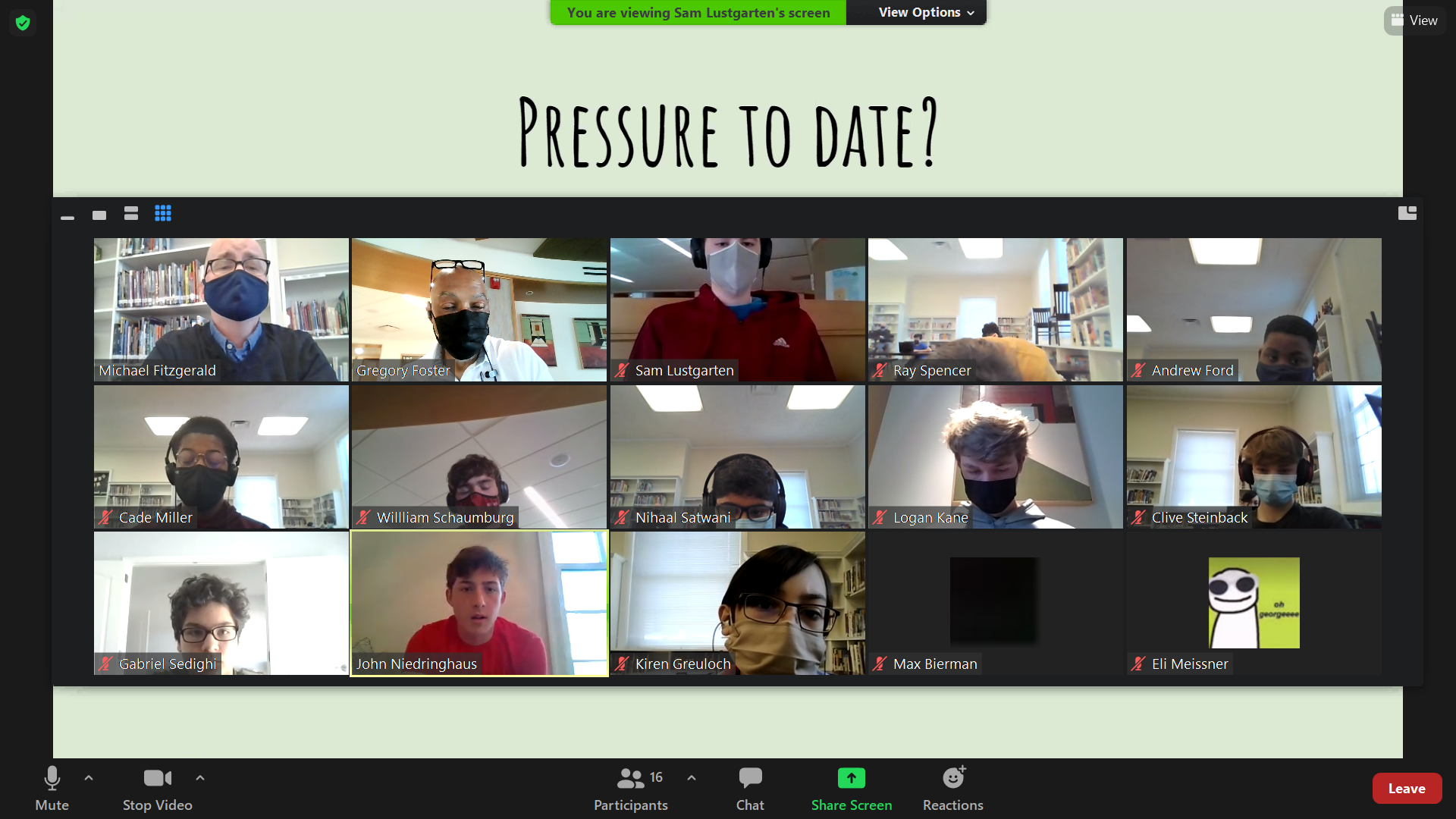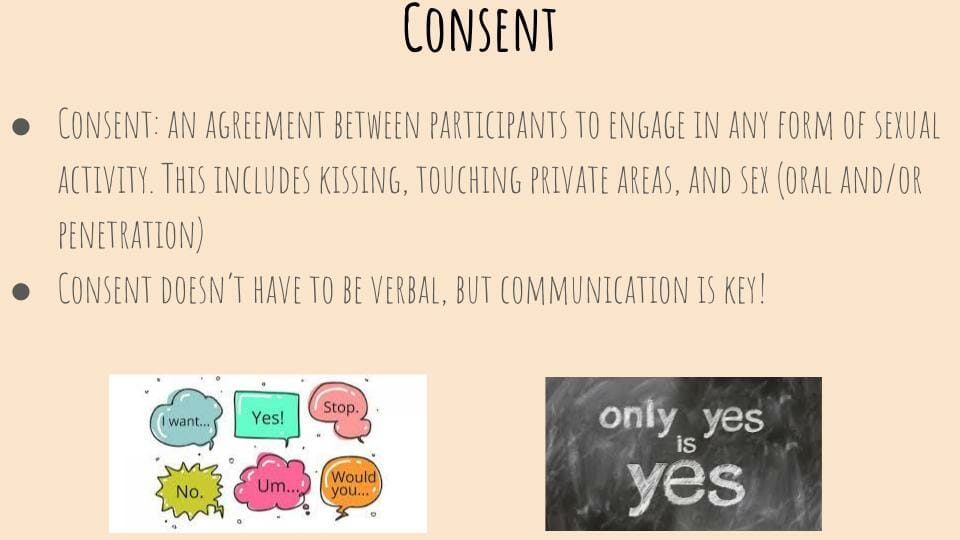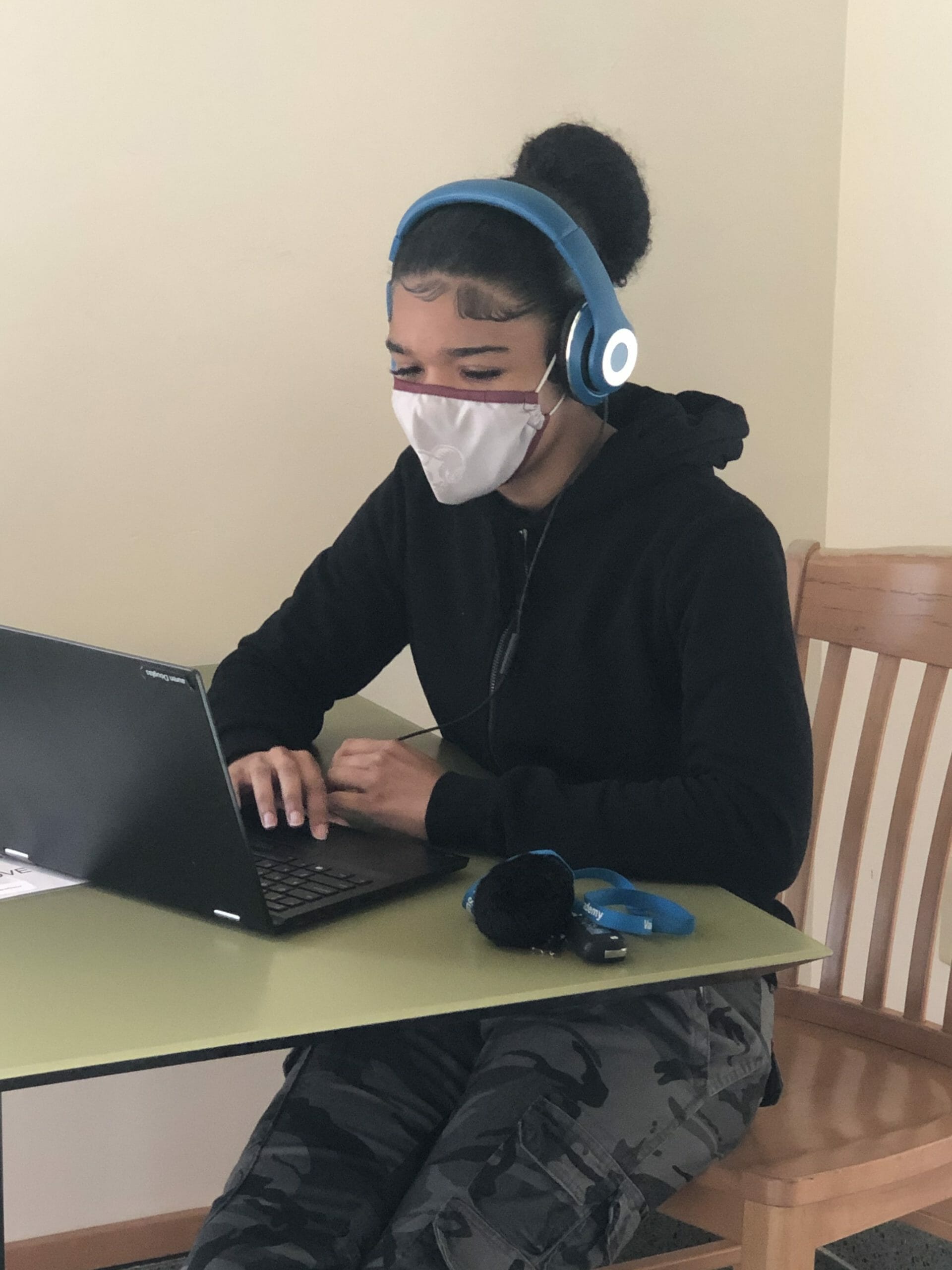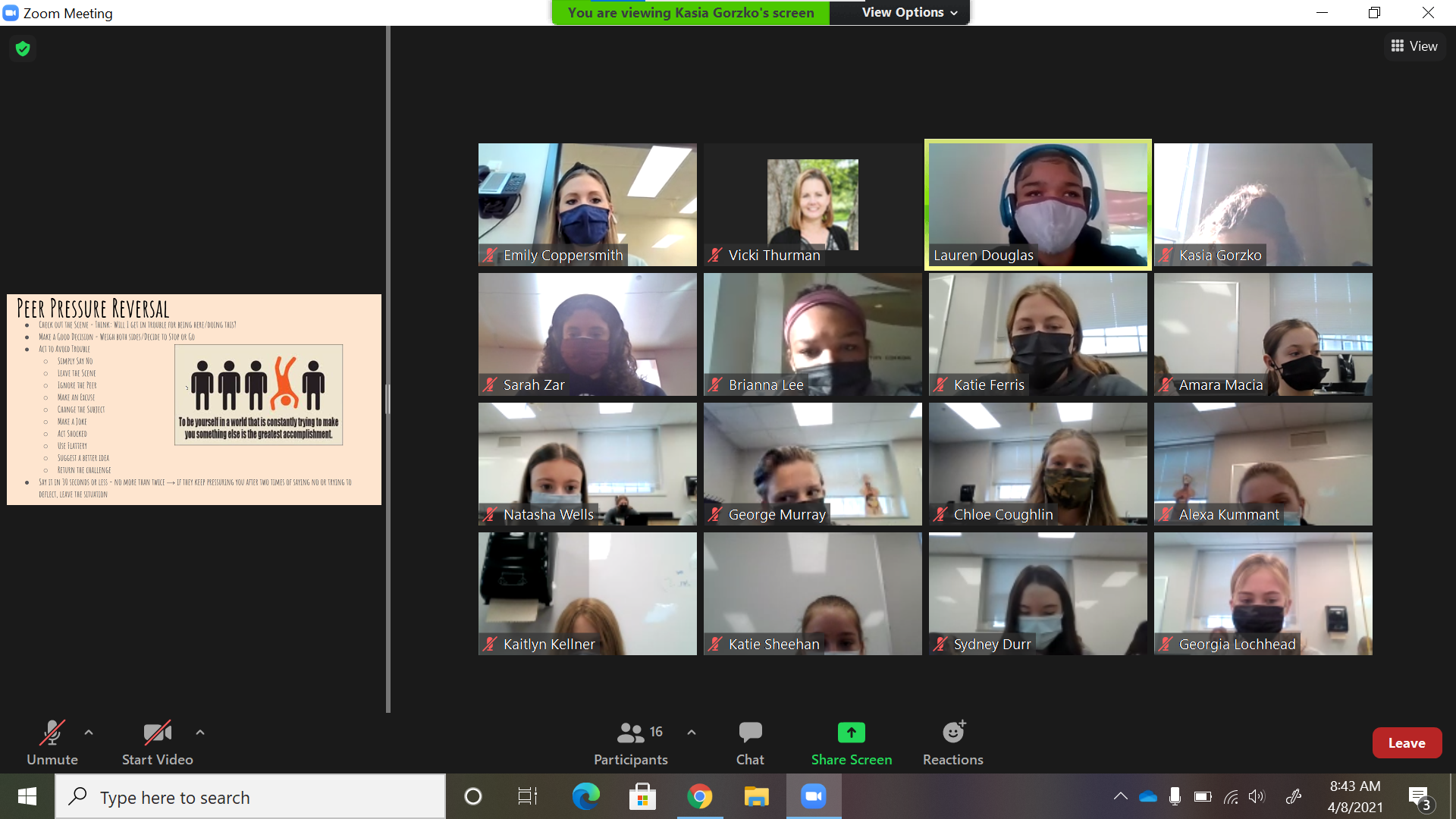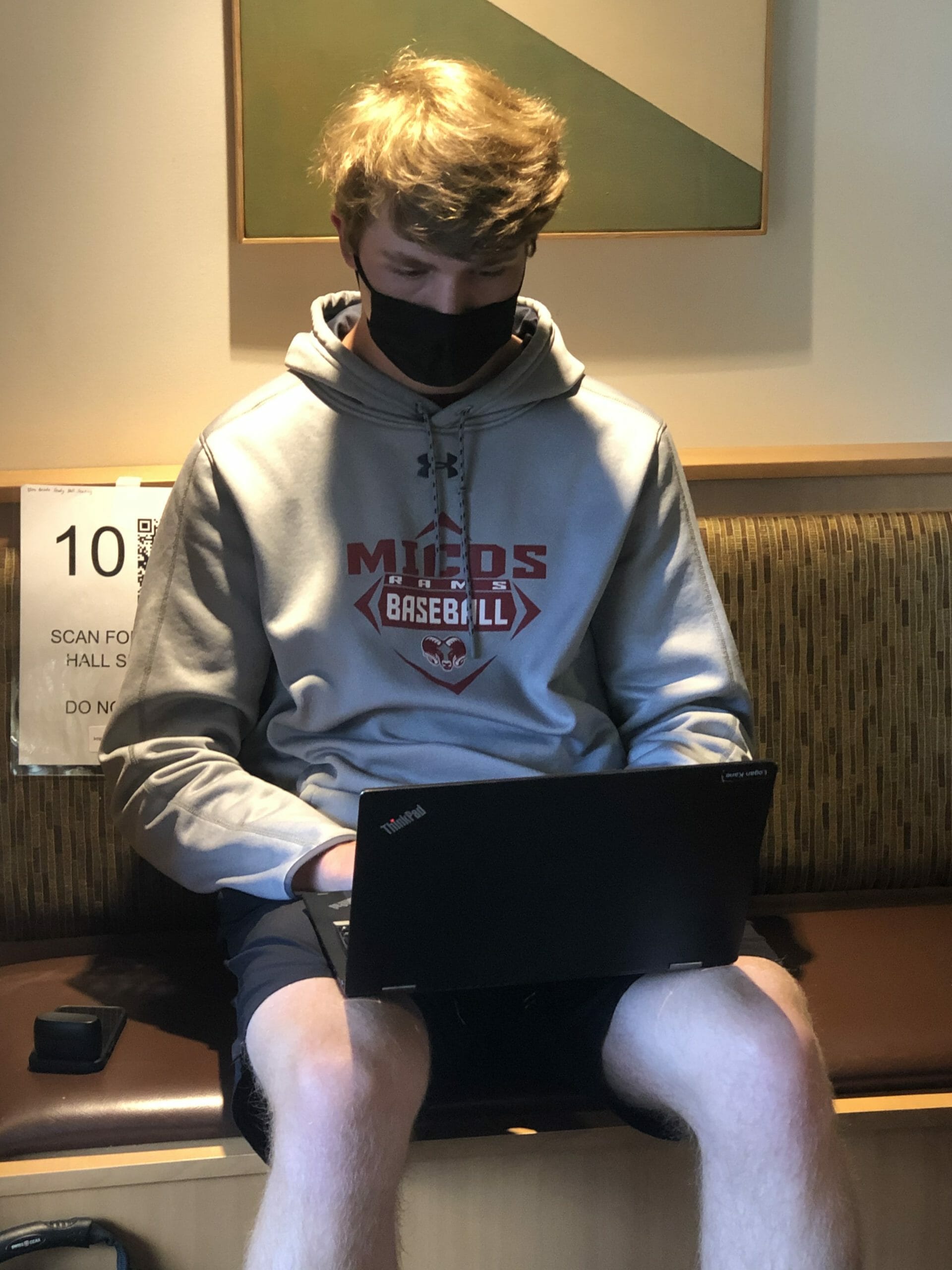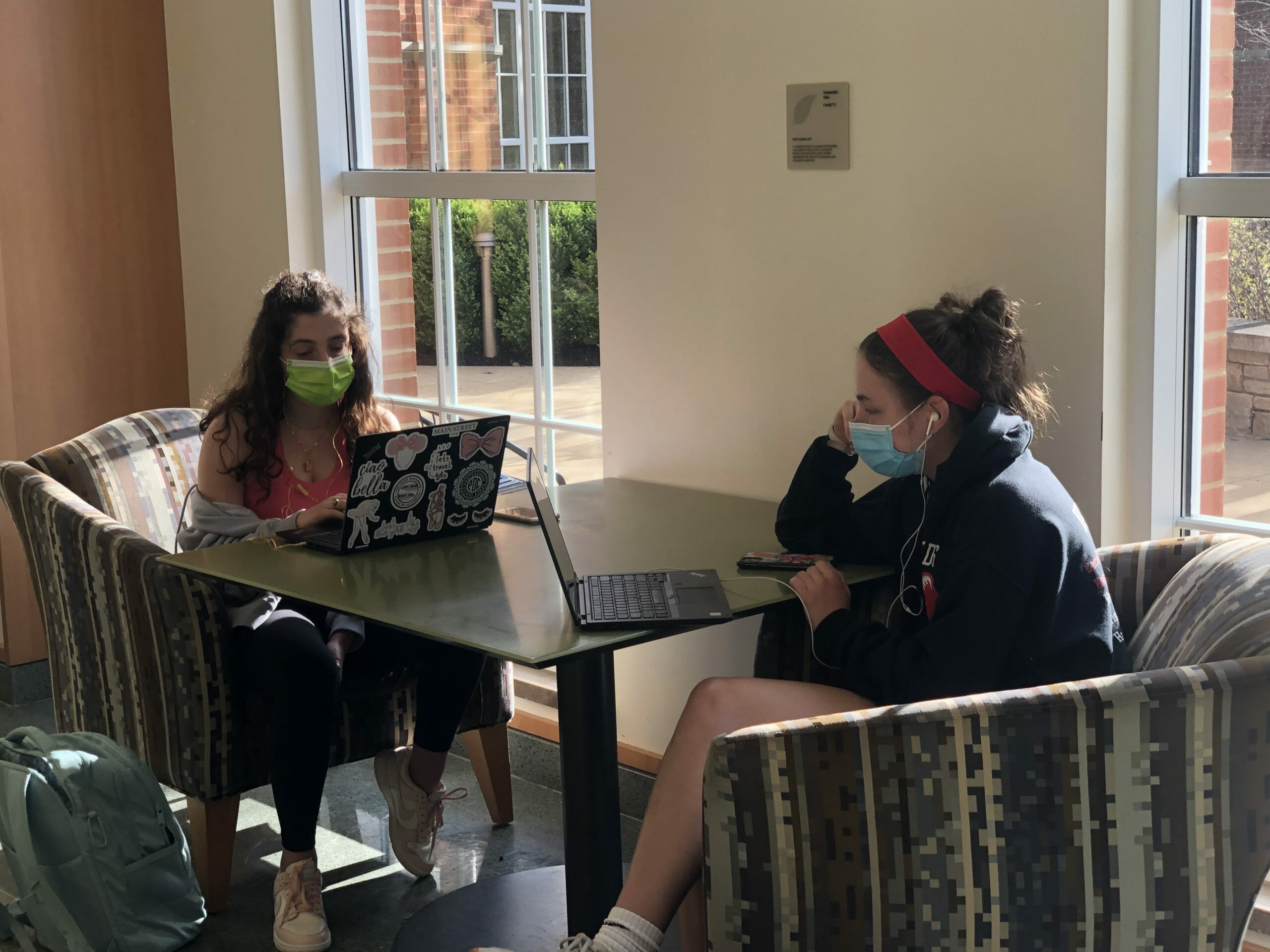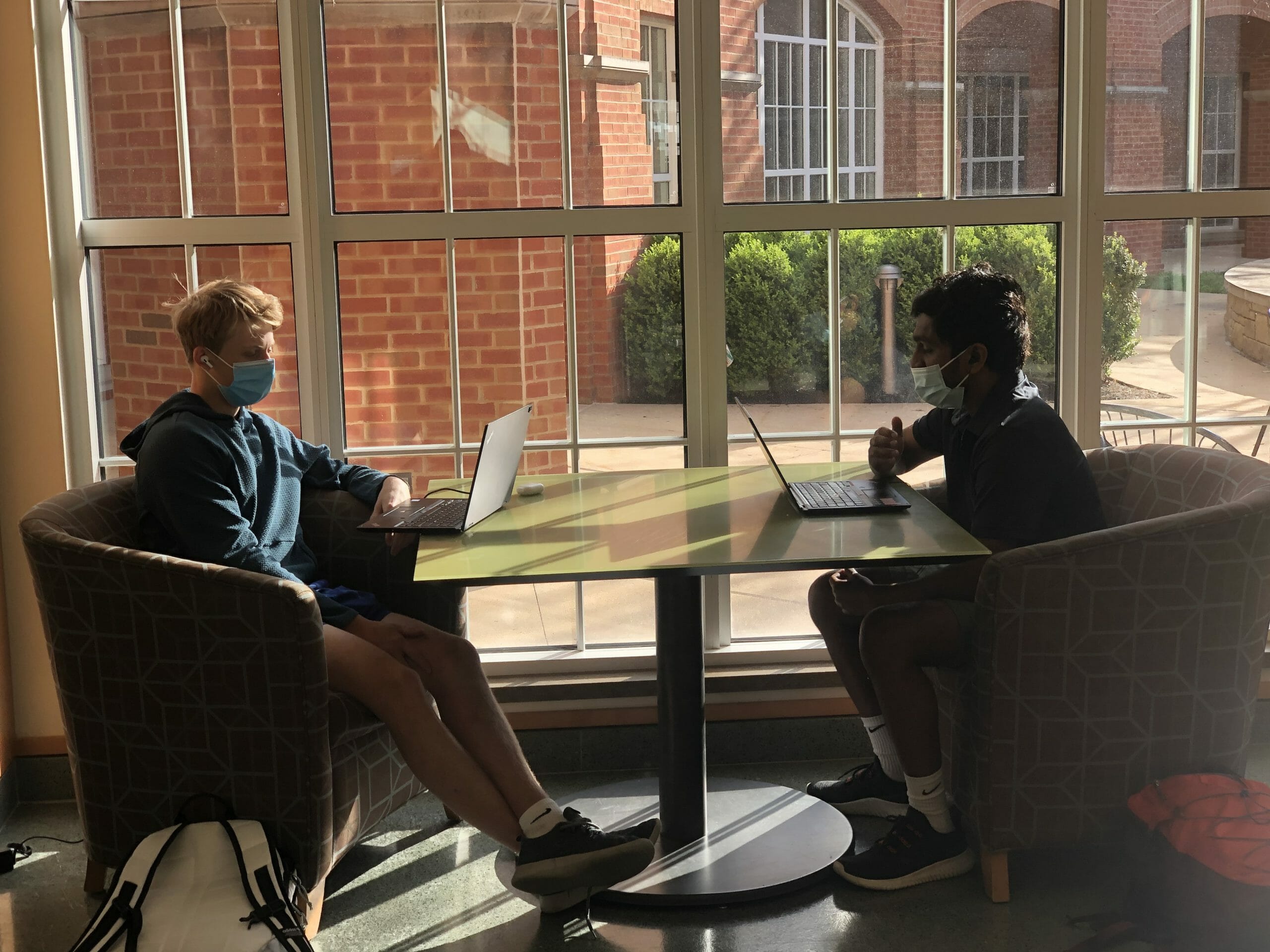As summer approaches and the social bubbles of teenagers invariably widen, our Upper School Peer Mentors used their last 7th grade Peer to Peer meeting of the year to discuss healthy decision making. Many topics fall under this umbrella, so this session focused on peer pressure and consent.
As always, our Peer Mentors kicked off the session by sharing their personal experiences with peer pressure (both positive and negative) and strategies for saying “No” when faced with a conflicted decision. The sharing mechanism is a great way to set the tone for a conversation versus the session feeling like a lecture to the younger students.
What is Peer Pressure?
Peer pressure is defined as the influence of a social group or friends on individuals to behave in a certain way or be like them. While negative peer pressure tends to get all the press, positive peer pressure also exists and is a good thing!
Positive peer pressure/influence can look like:
- Pressure to challenge yourself or do something positive for someone else
- Trying new things you did not think you could before
- Peers talking you out of doing something that could be harmful to you
- Helping someone
- Being inclusive
- Being an upstander
The benefits of positive peer pressure can help teens overcome fears, step outside of their comfort zones, be open to receiving good advice, stay safe and healthy, and form stronger relationships.
Negative peer pressure/influence can look like:
- Talking you into doing something that does not feel healthy or safe
- Feeling there may be consequences if you say no to the peer
- Social repercussions such as “I won’t be seen as cool. They won’t invite me to go out with them again. They will make fun of me.”
- Being labeled as a goody two shoes
There is a distinct difference between the two forms of peer influence. The positive form taps into personal expression, growth, and service to a teen’s surrounding circle of friends and community. The negative form preys on insecurities, the fear of missing out, and social isolation. The peer mentors addressed negative pressure more succinctly, “It’s bad. Don’t do it. Make good decisions. The End.”
The 7th graders were asked to share what they’ve experienced or the types of scenarios they might encounter regarding peer pressure. Topics included drinking, dating/sexual behavior, vaping/smoking/drugs, cheating, lying to parents or others, stealing, excluding peers/cliques, and gossiping. Many younger teens don’t realize that peer pressure can especially come from friends, which can be harder to deflect.
Tips for doing the inner work to steer towards healthy decisions:
- Self-confidence is vital: Be yourself and don’t apologize for not thinking the same way as someone else
- Stick to your values and know where you stand in certain situations
- Listen to your gut and trust your instincts
- Ask yourself: What would my parents or grandmother say?
- Ask yourself: What would happen if I got in legal trouble – impacting family, school, or sports?
- Find friends who have the same values as you
- Practice saying “no”
The peer mentors encouraged the 7th graders to practice saying no and provided strategies for different social situations. A beneficial tactic was on-the-spot peer pressure “reversal,” which involves checking out the scene by looking and listening to what’s going on in the room and asking internally, “Will I get in trouble for being here/doing this?” With the answer to that question, teens can then weigh both sides and simply decide to Stop or Go.
Other tips for teens to avoid trouble:
- What to say:
- Simply say no
- No, thanks. I’d rather not.
- If peers keep pressuring: “I said no. Please quit pressuring me.”
- How to say it: In 30 seconds or less, no more than twice – if they keep pressuring you after two times of saying no or trying to deflect, leave the situation.
Escape Hatch options:
- Create a code with parents: use an emoji or code word that indicates you need to be picked up; no questions asked. Set a rule to agree not to talk about it until the next day.
- Ignore the peer: act like you didn’t hear them, talk to the person next to you instead
- Make an excuse: blame it on your parents or family, “My mom would kill me if I get caught. I’d be grounded for life. Addiction runs in my family.”
- Blame it on your sport: “I have a pact with my coach. I am planning to play in college and can’t ruin my chances. I have to get up early tomorrow.”
- Change the subject: “Did you see the new season of…..Did you watch that basketball/Blues/Cardinals game last night?
- Humor/make a joke
- Act shocked
- Use flattery: “Your outfit is really cute tonight.”
- Suggest a better idea: “Let’s go talk to Anna and McKenzie instead.”
- Return the challenge: “Why would anyone smoke? It’s expensive; you look stupid when you do it, it can give you cancer. Why would you drink? You can lose control of what you are doing and not know what you did.”
While our students don’t condone drinking or smoking, another option to avoid the pressure to drink is to hold a cup or an empty beer can and simply pretend so that you are not approached.
The peer mentors then moved on to the topic of dating as similar pressures arise in those situations. They shared the definition of consent. Above all, they stressed the importance of communication. A crucial part of any relationship is communicating and making sure each person is on the same page for every action taken in that relationship. Students were encouraged to speak to a peer mentor or an adult if/when something happens that conflicts with their consent level.
The session wrapped up with Q&A, and since this was the last meeting of the year, there was time for sharing favorite memories, goals, and advice for rising 7th graders now that they know so much!
Thank you, peer mentors, for being thoughtful, open, and kind leaders for our younger students!
Seventh grade parents! Check in with your students about the Peer to Peer program and use the information in these summary articles as a way to further the discussion about difficult topics: Self-Respect, Stress/Anxiety, Healthy Relationships, Unhealthy Relationships, Tech & Social Media.
